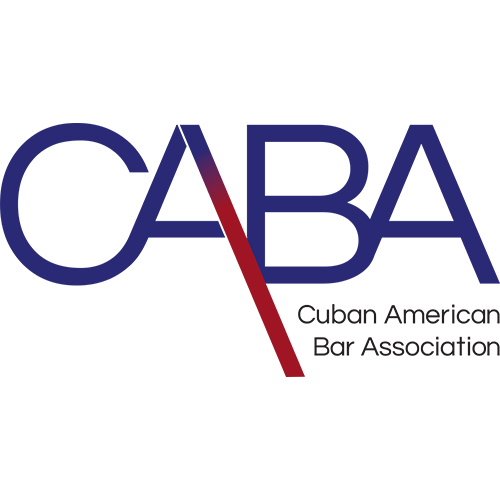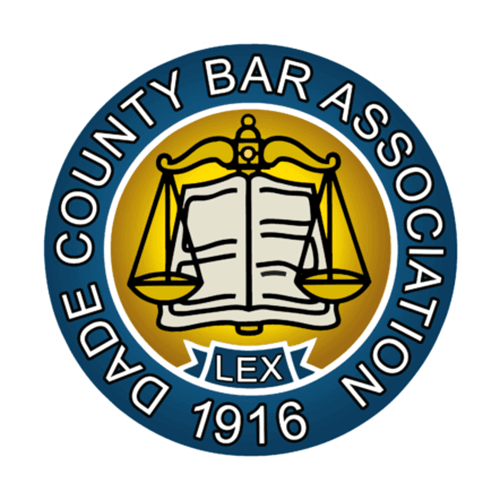Is Drunk Driving a Felony?
PROTECTING YOUR RIGHTS SINCE 1983
Miami car accident attorneys at Bernstein & Maryanoff Injury Attorneys have the knowledge and experience necessary to get you maximum compensation for your car accident injuries.
Drunk driving is a topic of utmost importance and concern for road safety. The consequences and dangers associated with this reckless behavior are alarmingly severe, not only for the intoxicated driver themselves but also for innocent lives they put at risk and potentially injure or kill. One question often arises, “Is drunk driving a felony?”
Is drunk driving considered a felony in Florida?
Drunk driving can be considered a felony offense in Florida under specific circumstances. In most cases, driving under the influence (DUI) is classified as a misdemeanor charge. However, if certain aggravating factors are present, such as causing serious bodily injury or death while operating a vehicle under the influence, it can elevate the offense to a felony.
In Florida, a DUI can be charged as a third-degree felony if it results in serious bodily injury to another person. If someone dies from a drunk driving accident, it becomes even more severe and can lead to charges like vehicular manslaughter or DUI manslaughter. These offenses are classified as second-degree felonies or even first-degree felonies, depending on the circumstances and prior convictions.
Misdemeanor offenses vs. felony offenses
DUI offenses are typically categorized as either misdemeanors or felonies, depending on the severity of the incident and other factors. Generally, a first-time DUI offense without additional circumstances is treated as a misdemeanor.
However, when other factors exist concurrently with a DUI offense, it may be elevated to a felony. These factors commonly include:
- Causing serious bodily injury or death while driving under the influence
- Having multiple prior DUI convictions within a specified timeframe
- Driving under the influence with a suspended or revoked license
- Transporting a minor while intoxicated
- Certain other aggravating circumstances
Penalties if convicted
If convicted of a DUI in Florida, the penalties vary depending on the circumstances and any prior convictions. For a typical first-time DUI conviction, potential penalties may include:
- Fines: A fine ranging from $500 to $1,000 or higher if the blood alcohol concentration (BAC) was above 0.15% or a minor was in the vehicle
- Probation: Up to one year of probation
- License suspension: A minimum of six months and up to one-year suspension of your driver’s license
- Community service: Mandatory completion of community service, usually around 50 hours
- DUI school: Completion of a DUI education program or substance abuse treatment
- Ignition Interlock Device (IID): Installation and maintenance of an IID in your vehicle for at least six months if you had a BAC above 0.15% or if a minor was present
The penalties increase significantly for subsequent DUI offenses or incidents involving aggravating factors such as causing injury or death while under the influence. These cases are often classified as felony offenses and may result in:
- Higher fines: Felony DUI convictions can lead to fines ranging from $2,000 to $10,000 or more
- Lengthier imprisonment: Felony DUI offenses can result in imprisonment ranging from several months to years, depending on the circumstances. The specific length of imprisonment will depend on factors such as prior convictions and the severity of the incident.
- Extended license suspension: A felony DUI conviction may lead to a longer period of driver’s license suspension or even permanent revocation
- Mandatory substance abuse treatment: Court-ordered completion of a substance abuse program may be required for individuals convicted of felony DUI offenses
Felony DUI offenses
Felony DUI offenses carry significantly more severe penalties than misdemeanor offenses in Florida. Here are some of the potential penalties for different felony DUI offenses:
- Felony DUI resulting in death: If a person is convicted of a DUI and it resulted in the death of another individual, they may face charges such as vehicular homicide or manslaughter. The specific legal classification will depend on the circumstances of the incident. Penalties can include substantial fines ranging from $5,000 to $10,000 or more, imprisonment up to 15 years or even longer, mandatory license revocation for a minimum of three years, and potentially permanent revocation.
- Felony DUI resulting in serious bodily injury: When a DUI causes serious bodily harm to another person, it becomes a third-degree felony offense. Convictions may lead to fines between $1,000 and $5,000 or higher if specified aggravating factors exist, like a high BAC and imprisonment of up to five years or more, depending on prior convictions and other considerations.
- Third DUI within ten years: A third conviction for driving under the influence within ten years is considered a third-degree felony offense in Florida, regardless of whether it resulted in injury or death. Penalties for this offense can include fines ranging from $2,000 to $5,000 or higher based on additional circumstances, imprisonment up to five years or more depending on prior convictions, mandatory installation of an Ignition Interlock Device (IID) upon license restoration, and potentially a permanent revocation of driving privileges.
- Fourth DUI offense: A fourth conviction for DUI in Florida is classified as a third-degree felony regardless of the time frame between offenses. The penalties for a fourth DUI within any period can be substantial. They may include fines ranging from $2,000 to $5,000 or more and imprisonment up to five years or longer, depending on prior convictions and other factors.
It’s important to note that these penalties are general guidelines and are subject to change based on specific details of each case. Additionally, repeat offenders typically face harsher consequences with increasing severity for subsequent offenses.
What can I do if I was hit by a drunk driver and was injured?
If you have been injured in an accident caused by a drunk driver, taking specific steps to ensure your safety and protect your legal rights is crucial.
- Seek immediate medical attention: Your health and well-being should always be a priority. If you have sustained injuries, seek medical help promptly. Even if the injuries seem minor initially, it is essential to get evaluated by healthcare professionals as some symptoms may appear later.
- Contact law enforcement: Report the incident to the police immediately. Provide accurate details about the accident and inform them that you suspect the other driver was intoxicated.
- Gather evidence: If your condition allows, try collecting evidence at the accident scene, such as photographs of vehicle damage, skid marks, or any relevant road conditions
- Obtain witness information: If there were witnesses present at the accident, collect their contact information so they can provide statements corroborating your version of events
- Document your injuries and expenses: Keep records of all medical treatments received for your injuries, along with related bills and expenses like hospital stays, medications, surgery costs, therapy sessions, and lost wages
- Notify your insurance company: Florida is a no-fault state, so initially, you must first claim your damages and injuries through your insurance company
- Speak to a car accident injury lawyer: As soon as possible, consult an experienced personal injury attorney specializing in car accidents and drunk driving cases. A lawyer can guide you through the legal process, protect your rights, and help you pursue compensation for your injuries and damages from all responsible parties.
- File a personal injury claim or lawsuit: Working closely with your attorney, file a personal injury claim against the liable party’s insurance company seeking compensation for medical expenses, lost wages, pain and suffering, emotional distress, and property damage
Your rights under Florida law
Under Florida law, you have certain rights when injured in an accident caused by a drunk driver, including:
- Right to compensation: You have the right to seek monetary compensation for your injuries and damages from the responsible party
- Right to legal representation: You have the right to hire a personal injury attorney who can protect your interests throughout the legal process
- Right to pursue a lawsuit: If negotiations with insurance companies fail or do not result in adequate compensation, you have the right to file a personal injury lawsuit against the liable party
- Right to access evidence: You are entitled to access evidence related to your case, such as police reports, witness statements, medical records, and photographs of the accident scene or your injuries, proving liability and supporting your claim for damages
It is important to consult with a drunk driving accident lawyer who can provide personalized guidance on your rights and help navigate the legal complexities of seeking compensation for your injuries.
What damages can be collected if I am injured by a drunk driver?
Monetary damages
- Medical expenses: Compensation for past and future medical expenses related to your injuries, including hospital bills, surgeries, medications, rehabilitation costs, and any necessary ongoing treatments
- Lost wages: Compensation for income lost due to the accident, including missed workdays or reduced earning capacity
- Property damage: Repairs or replacement costs for damaged property such as your vehicle or personal belongings
Non-monetary damages
- Pain and suffering: Compensation for physical pain, emotional distress, mental anguish, and loss of enjoyment of life resulting from the accident and injuries
- Loss of consortium: Damages awarded to a spouse or family member for the losses they experience due to your injuries, including the loss of companionship, love, affection, and support
- Disfigurement or disability: Compensation for any permanent scarring or disfigurement caused by the accident or resulting disabilities that affect your daily activities
Punitive damages
Punitive damages specifically punish intoxicated drivers whose actions demonstrate gross negligence. Their purpose is not only to compensate the victim but also to deter and discourage similar behavior in the future from the defendant and others. While punitive damages are not typically awarded in every drunk driving case, they may be available if certain circumstances show a willful or wanton disregard for the safety of others.
Talk to Miami’s top drunk driving injury lawyer
If you have been injured in an accident caused by a drunk driver, get the legal help you deserve. At Bernstein & Maryanoff Injury Attorneys, we are Miami’s top drunk driving injury lawyers. We offer a free consultation to discuss your case and explore your options for compensation.
Our experienced attorneys are dedicated to fighting for victims’ rights and tirelessly pursue justice to ensure you receive the compensation you deserve.
Schedule a free consultation today.
Sources:
FLA. STAT. § 316.193 (2b). (2023).
FLA. STAT. § 627.737. (2023).
FLA. STAT. § 768.72. (2023).





